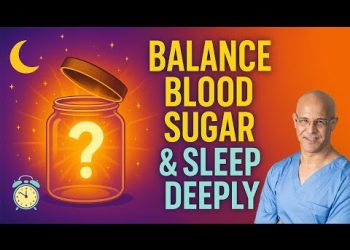Understanding Thyroid Dysfunction and Its Impact on Energy Levels
Do you feel like no matter how much rest you get, your energy levels remain low? This is a common symptom associated with thyroid dysfunction. In this discussion, we aim to unravel the secrets behind why a malfunctioning thyroid often results in low energy and to provide practical steps you can take to boost your daily energy levels.
Types of Thyroid Dysfunctions
Thyroid issues can manifest in various forms, including hypothyroidism (low thyroid), hyperthyroidism (high thyroid), and autoimmune conditions like Hashimoto’s or Graves’ disease. Interestingly, all these conditions tend to share a common symptom: low energy. When your thyroid isn’t functioning properly, the rest of your body struggles to maintain energy levels.
Impact on Adrenal Hormones
One of the primary reasons people with thyroid disorders experience low energy is that these disorders affect other hormones such as adrenal hormones. The adrenal glands, located on top of the kidneys, produce a hormone called cortisol. Cortisol is essential for maintaining energy. With thyroid disorders, adrenal dysfunction often occurs, resulting in either excessive or insufficient cortisol production, leading to fatigue.
Thyroid’s Influence on Insulin
The thyroid also plays a crucial role in insulin regulation. Many people with thyroid disorders develop insulin resistance, where the body fails to utilize insulin effectively. This disruption prevents essential organs from receiving energy, leaving the body fatigued and sluggish despite adequate sleep or rest.
Mitochondrial Function and Thyroid Health
Mitochondria, the powerhouse of our cells, are directly influenced by thyroid hormones. When the thyroid is not functioning optimally, mitochondrial activity decreases, leading to reduced energy production. This lack of energy production contributes significantly to the fatigue experienced by individuals with thyroid issues.
Inflammation and Its Role
Individuals with thyroid dysfunction frequently exhibit elevated levels of inflammation, which further hinders the body’s ability to function at optimal energy levels. High inflammation leads to an increased burden on the body systems, reducing energy production and causing fatigue.
Boosting Energy Through Diet
To combat low energy, the first step is ensuring your first meal of the day is rich in high-quality protein. This jumpstarts your thyroid and supports your body’s machinery in producing energy. Whether through meats, eggs, or plant-based protein sources like nuts and seeds, incorporating enough protein is paramount to improving energy levels.
Supplements to Support Energy Levels
Certain supplements can aid in enhancing energy production. Adaptogens like Rhodiola and Ashwagandha help support adrenal health and boost energy. Additionally, amino acids like L-tyrosine contribute to balancing thyroid hormones and promoting energy production. Including these supplements in your routine can have a significant impact.
Supporting Mitochondrial Health
Ensuring a diet full of good quality proteins and fats, such as fatty fish, olive oil, and seeds, supports mitochondrial health. Supplements like Coenzyme Q10 and L-carnitine also help increase energy by supporting mitochondrial function. These dietary inclusions significantly boost the body’s energy production capabilities.
Reducing Inflammation for Better Energy
An anti-inflammatory diet, rich in colorful vegetables, proteins, and healthy fats, helps lower inflammation and improve energy levels. High-dose vitamin C is especially beneficial due to its anti-inflammatory properties, supporting mitochondrial and overall body function.
Conclusion
Addressing the various factors that contribute to fatigue can help you improve your energy levels dramatically if you have a thyroid disorder. By making informed dietary choices and incorporating targeted supplements, you can effectively manage your energy levels and enhance your overall well-being. Remember, always consult with a healthcare professional before starting any new supplement regimen.











